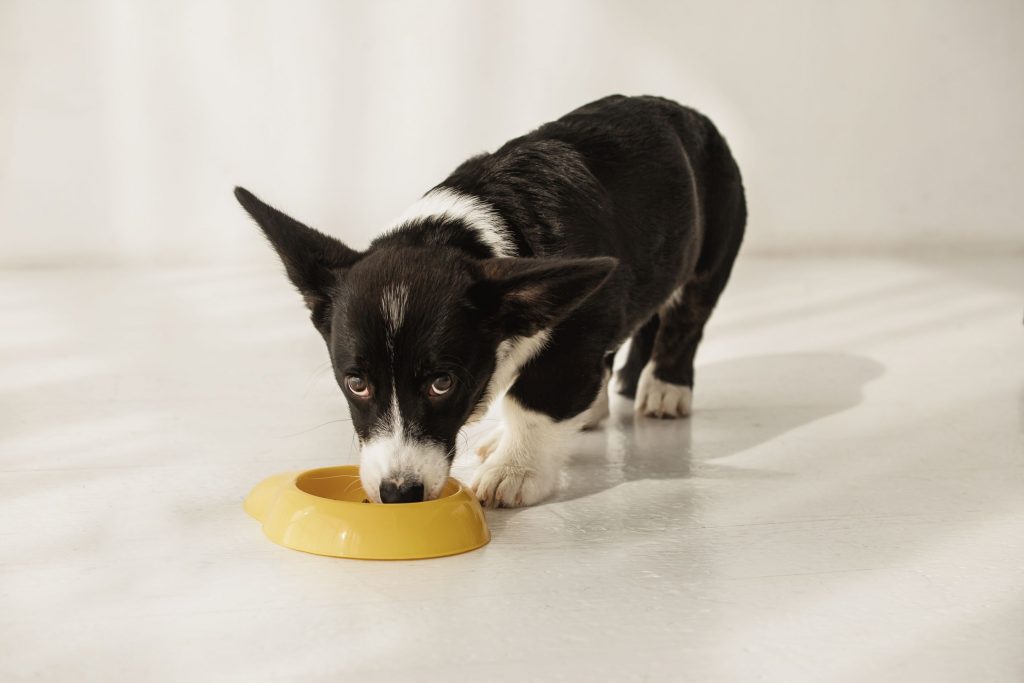Help! Why Does My Dog Have Stinky Fur?

Do you have an adorable, furry, four-legged stinker on your hands? While some level of ‘doggy smell’ is to be expected from our canine companions, truly stinky fur may be cause for concern.
Our team at Lone Tree Veterinary Medical Center doesn’t shy away from malodorous topics and can help you get to the bottom of your pup’s smelly situation!
Common Causes of Stinky Fur
Regular bathing and brushing will go a long way toward cutting down on normal doggy odors. Check with your veterinarian to see how often your dog should be bathed (we carry hypoallergenic pet shampoos for home bathing in our lobby retail store).
In some cases, however, stinky fur may be an indicator of an underlying health condition. Do a quick assessment to see if your dog’s odorous issue falls into one of these categories:
Wet dog smell – Everyone knows the smell of a dog who has just come in from the rain, a play in the snow, or a dip in the lake. However, if your dog is constantly getting wet it could lead to chronically stinky fur. Make sure to dry your pet thoroughly (we prefer using a soft towel) every time its fur gets damp.
Stop, drop, and roll – Does your sweet pup like to roll in dirt, dead grass or plants, garbage, dog feces, or other nasty things? It’s easy enough to figure out if this is the cause of stinky fur. In addition to bathing your dog regularly, keep your dog leashed and close to you at all times when outdoors on walks and hikes to avoid these incidents. Our certified dog trainer would also be a good resource for helping you redirect your dog from this odiferous-oriented behavior.
Anal sac issues – Anal sacs, located just inside the anus, are filled with a foul smelling substance that is secreted with each bowel movement. Impacted or infected anal sacs can cause a lot of problems, including making your pet smell pretty bad. You may also see your pet excessively licking the area around the anus or scooting). Periodically, some dogs need to have these glands manually expressed.
Bad breath – Bad breath has a tendency to permeate the fur around the face, and should always be investigated by your veterinarian immediately. Common causes of bad breath include dental disease, kidney disease, or late-stage diabetes.
Skin conditions – Skin irritation or infections, such as those related to allergies (seasonal, environmental, or food), wounds or abrasions, parasites, or a yeast infection can cause an unpleasant odor. Give us a call if you notice any redness, swelling, oozing, or bleeding from the skin, or if your pet is excessively licking or biting at a particular area. Skin conditions can be more difficult to treat if not addressed early on.
Ear infection – Ear infections are common, and can be quite stinky. Bring your dog in to see us for treatment if you notice a foul odor, redness, or discharge from the ear. A common cause of ear infections is allergies, but may also be as simple as an ear mite infestation. Keeping your pet’s ears dry is important, so don’t forget to dry the ears thoroughly after baths and swimming. You can also clean your pet’s ears at home with a pet-safe ear solution (we carry these at our facility and at our online store).
Dog breed – It is important to note that some dog breeds tend to have naturally oilier skin than other breeds, and this tendency predisposes them to having a stronger odor to their fur.
If you suspect a problem with any of the above issues or your pet’s stinky fur in general, don’t hesitate to give our team at Lone Tree Veterinary Medical Center a call.
And, don’t forget to ask about our Grooming Salon, where our full-time professional groomers can give your dog’s hair, coat, ears, and nails the gentle grooming care and pampering they deserve!



